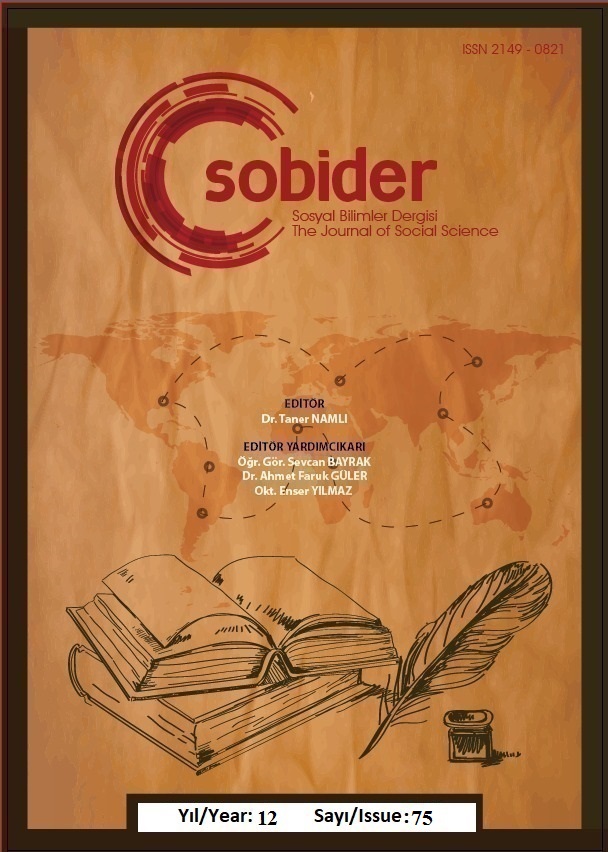Author :
Abstract
Klasik şiirde olduğu gibi, Tanzimat şiiri de Allah ve âlem algısında tasavvufî düşüncelerden yararlanır. Söz konusu tasavvufî düşünceler Allah’ın yaratmasıyla ilgili olan sudûr, işrâk ve vahdet-i vücut gibi nazariyeler etrafında şekillenir. Tanzimat şairleri bu düşünceleri doğrudan veya dolaylı olarak kullanır. Bunun nedeni Batı etkisinde yeni bir şiir anlayışı geliştiren Tanzimat şairlerinin şekil ve içerik olarak gelenekten gelen birikimden faydalanmaya devam etmesidir. Bu bağlamda; Şinasi, Namık Kemal, Ziya Paşa, Recaizade Mahmut Ekrem ve Abdülhak Hamid Tarhan’ın şiirlerinde eski ve yeninin birlikte yer aldığı görülür. Tanzimat şiirinin yenilikçi tutumu ise şairlere bireysel duygu ve düşüncelerini açık bir şekilde ifade etme imkânı sağlar. Bu sayede şairlerin Allah ve âlem algısındaki kişisel düşünceleri de şiirlerde görülmeye başlar. Tanzimat şiiri, Allah ve âlem algısı üzerine; gelenekten gelen güçlü birikim, şairlerin kişisel duygu/düşünceleri ve yeni karşılaştıkları Batı şiiri olmak üzere üç ayrı yapıdan beslenir. Birbirine benzemeyen farklı kaynaklardan beslenmenin sonucu ise bu dönemde gelişen Türk şiirinde kopuş, süreklilik ve yeniliğin bir arada olmasıdır.
Keywords
Abstract
As in classical poetry, Tanzimat poetry also makes use of Sufi ideas in its perception of God and the universe. These thoughts are shaped by views such as emanation, ishrāq and the unity of existence, which are related to Allah's creation. Tanzimat poets benefit from these ideas directly or indirectly. The reason for this is that the Tanzimat poets, who developed a new understanding of poetry under Western influence, continued to benefit from tradition in form and content. In this context, it is seen that the old and the new take place together in the poems of Şinasi, Namık Kemal, Ziya Paşa, Recaizade Mahmut Ekrem and Abdülhak Hamid Tarhan. The innovative attitude of Tanzimat poetry provides poets with the opportunity to express their individual feelings and thoughts openly. In this way, the poets' personal thoughts about their perception of God and the universe begin to appear in the poems. Tanzimat poetry is nourished by three different structures regarding the perception of God and the universe: the strong accumulation of tradition, the personal feelings/thoughts of the poets, and the Western poetry they had just encountered. The result of feeding from different, dissimilar sources is the coexistence of disengagement, continuity and innovation in Turkish poetry that developed in this period.





